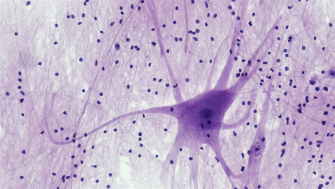The latest early-stage research on ALS treatments [2024 Update]
Last updated: 03 September 2024
![The latest early-stage research on ALS treatments [2024 Update]](https://everyone.org/media/magefan_blog/major-tom-agency-mgS73ggL8RU-unsplash.jpg)
You can legally access new medicines, even if they are not approved in your country.
Learn howWhile there is no ALS cure in sight yet, there is a lot of new ALS research currently ongoing. It brings hope for new therapies to modify or slow down the disease.
To give you an idea of the potential ALS breakthroughs in the making, we'll review some of the early-stage research that's worth keeping an eye on.
Medicine development is a lengthy process, so it'll take some time until trials are completed and data are available. However, it's important to remember - there is a lot going on in ALS treatment research, and there are many reasons for hope.
What is the latest research on ALS?
In this section, we will highlight the most recent and promising developments in the field of ALS treatment. Please note, however, that these potential treatments are in very early development stages. Before they could potentially play a role in your treatment, they will need to be thoroughly tested in clinical trials and get regulatory approval.
New ALS treatments in early-stage development
-
Prosetin
Currently at Phase 1 clinical trial stage, prosetin is an experimental therapy for ALS. It intends to prevent motor neuron damage by blocking a protein called MAP4K. By inhibiting MAP4K, prosetin may help reduce inflammation and improve neuron survival.
Initially developed from research at Columbia University, prosetin has shown promising results in preclinical studies, and is now being tested in Stage 1 human clinical trials. It has also received orphan drug designation from the FDA, which supports its development for this rare condition 1.
-
S-XL6
Research led by Associate Professor Jeffrey Agar at Northeastern University has focused on the mutation of the SOD1 protein, a major antioxidant.
According to Agar, one of SOD1's mutations, A4V, is among the common causes of familial ALS. By using a small molecule linker, S-XL 6, Professor Agar's team aims to prevent SOD1's separation, thus stopping the mechanism behind cell destruction.
As of 2024, S-XL6 has only been tested in mice, rats, and dogs, with promising results. The research team is hoping to get the treatment into a clinical trial stage as soon as possible 2.
-
NF242
While we don't have a full understanding of what causes ALS, scientists believe that the TDP-43 protein plays a key role in the process. TDP-43 has been shown to form toxic clumps inside nerve cells, causing nerve damage and possibly driving ALS progression.
Researchers found that the ALS-related protein TDP-43 binds specifically to a section of another protein called NF242. NF242 seems to prevent TDP-43 from forming harmful clumps linked to ALS.
In experiments with flies and mice, boosting NF242 reduced these toxic clumps, improved movement, and extended the animals' lifespans. While this approach shows promise, more research is needed before it can be tested in humans 3.
-
SNUG01
SNUG01 is a Chinese gene therapy using an adeno-associated virus (AAV) to deliver the therapeutic target SG001. The treatment aims for long-lasting effects with a single administration. In preclinical studies, SNUG01 showed promising results in protecting neurons 4.
At the moment, an investigator-initiated trial with SNUG01 is underway at Peking University Third Hospital, and a Phase 1 clinical trial is set to begin soon 5.
How long do clinical trial phases take for ALS treatments?
This is a difficult question to answer, as many factors come into play. However, a guideline would be that Phase 1 trials take several months, Phase 2 and Phase 3 trials can take a couple of years each 6.
Typically, a medicine can be submitted for FDA approval after it has successfully passed a Phase 3 trial. However, in cases such as ALS where there is an unmet medical need, the FDA allows for an accelerated approval program. This means that an accelerated approval may be granted on the basis of data that predicts clinical benefit, but doesn't prove it yet. This can help shorten the timeline for bringing new ALS treatments to market.
In the meantime, the medicine manufacturer still needs to conduct studies to confirm the predicted clinical benefit. Based on these studies' results, the medicine will either get full approval or be withdrawn from the market 7.
Can you participate in research on ALS treatments?
If a treatment enters its clinical trial phase, you can sign up to participate. In order to do this, you will need your treating doctor's support. You'll also need to make sure you meet the trial criteria, and accept the risk of being assigned to the control group.
Going down the clinical trial route can seem overwhelming, but it is doable. A good starting point is going through these resources in order to identify ongoing clinical trials open to participants:
- ClinicalTrials.gov: This is your ultimate resource for all clinical trials in the USA. You can search for trials based on stage, condition, treatment, or location in order to identify one that fits you best.
- Mytomorrows.com: A helpful platform connecting patients with clinical trials. Includes trials located anywhere in the world.
- FindMeCure.com: Another platform helping patients find and apply for (global) clinical trials relevant to their condition.
Is participation in a clinical trial not an option for you? You can explore promising ALS treatments in late-stage development, or consider ALS treatments that are already approved outside the USA, but not yet locally available - e.g. Ketas, Tudcabil, or Clenbuterol.
References:
- Ray, Forest. Prosetin Granted Orphan Drug Designation as ALS Treatment. ALS News Today, 28 August 2020.
- New Treatment Strategy Shows Promise Against ALS in Preclinical Study. Techology Networks, Accessed 3 September 2024.
- Wexler, Marisa. Protein interaction may lead to new strategy for treatment of ALS. ALS News Today, 22 May 2024.
- SineuGene Raises Nearly ¥100 Million in Pre-A Round to Advance ALS Gene Therapy. Sineugene, Accessed 3 September 2024.
- Chinese Investigational ALS Drug SNUG01 Moves into Phase 1 Study—Looks Promising. TrialSiteNews, Accessed 3 September 2024.
- Trial Phases 1, 2 & 3 Defined | Clinical Research Management (CRM) | Research | Psychiatry and Behavioral Neuroscience | UC Medicine. College of Medicine | UC Cincinnati, Accessed 3 September 2024.
- Accelerated Approval Program. FDA, 22 February 2024.




